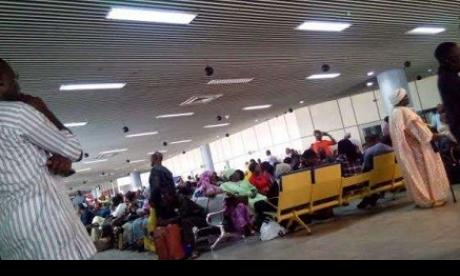Fuel shortages have caused an increase in cancellations and delays to internal flights in Nigeria over the last few days, a spokesman for the aviation authority said on Tuesday.
Nigeria is facing its biggest economic crisis for decades due to the knock-on effects of a slump in oil revenues. Its supply of dollars, needed to pay for refined oil products and other essential imports, has dried up and caused fuel shortages.
At least 75 ships with two and a half million tonnes of fuel are waiting at sea for importers to find the dollars they need to pay for the cargoes, according to ship tracking data and fuel traders.
“We apologise for the recent delays experienced as a result of shortage of Jet A1 [aviation fuel],” one airline, Dana Air, said in a statement on its website on Tuesday.
Sam Adurogboye, a spokesman for the Nigerian Civil Aviation Authority (NCAA), said all domestic airlines had been affected.
“There are cancellations. The airlines are not able to operate to full capacity on account of fuel issues,” he said in a telephone interview, noting that some airlines had halved the number of scheduled flights.
Nigeria’s reliance on crude oil sales for about 70 percent of national income has led to the erosion of foreign currency reserves, with the central bank adopting a fixed exchange rate in a bid to prevent further depletion.
Last week Oil Minister Emmanuel Ibe Kachikwu announced a new initiative under which the government will allow fuel importers to get dollars from sources other than the central bank.
The government also said that it was scrapping a costly fuel subsidy scheme and raising petrol prices by up to 67 percent to help it to tackle the crisis.
An indefinite strike starting on Wednesday had been planned in protest at the subsidy removal but on Tuesday a court ruled that unions representing millions of workers could not go ahead with the industrial action.














